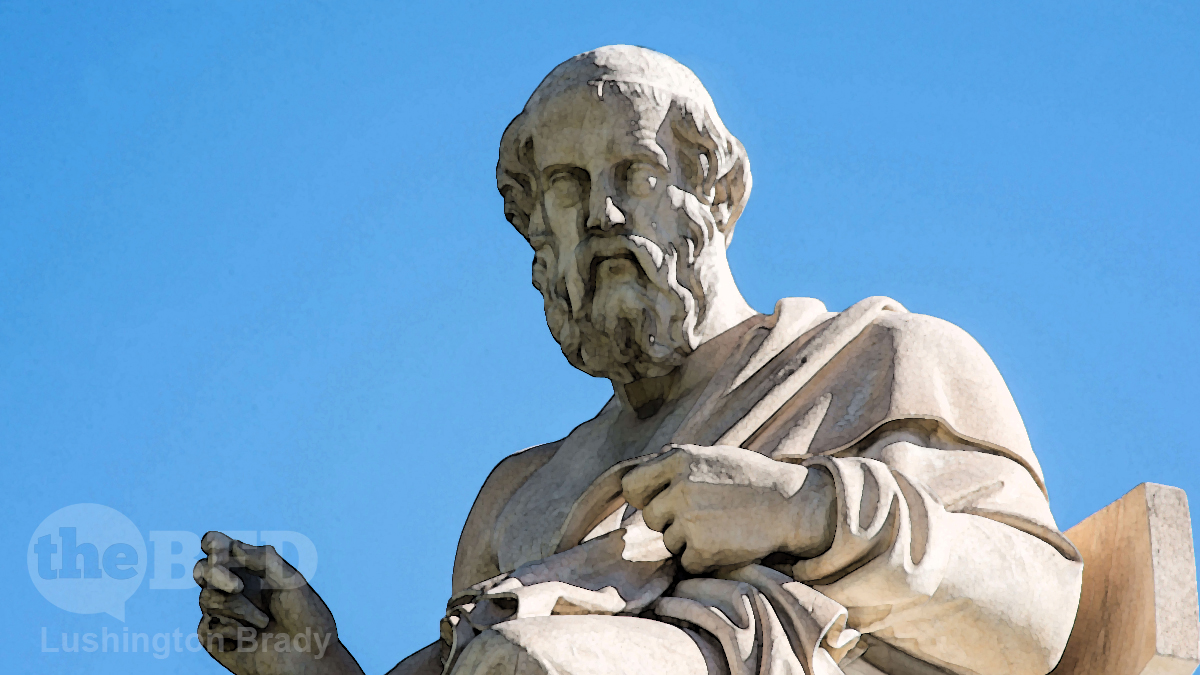OPINION
It’s often said that all Western philosophy is ‘a series of footnotes to Plato’. Of course, Plato was the successor to Socrates (and if you pronounced that ‘Soh-krayts’, you’re clearly a person of culture and distinction), and the contemporary of Aristotle, but it’s certainly indisputable that Plato’s shadow over Western culture is long and broad.
Not always for the best, of course. It’s not for nothing that Karl Popper titled the first volume of his anti-authoritarian magnum opus The Spell of Plato. As Popper wrote, the undisputed brilliance of Plato has misled too many admirers into uncritical repetition of some of his more questionable ideas. For instance, Plato’s ideal state had a tiny class of “Guardian” elites ruling with an iron rod over the sheep-like mass of the hoi polloi. Plato’s hatred of democracy and conviction that elites were naturally better and wiser has fuelled deadly utopian ideologies, from socialism to fascism.
Contrary perhaps to his belief that philosophers would make the best rulers, Plato’s own meddling in politics ended in disaster (for him, anyway). Plato’s attempt to replace the Syracusan tyrant Dionysius with his brother-in-law Dion went belly up. Plato faced the death penalty, but was sold into slavery instead. Eventually pardoned and freed, Plato died in 348 BC: depending whose word you take for it, either while writing, at a wedding, in bed while a young Thracian girl played the flute (presumably not the pink one) or simply in his sleep.
Where was he buried?
Until now, historians only knew that Plato was buried in the vicinity of his Academy in Athens.
But where, exactly? Italian researchers now believe they may have found the answer.
Using advanced technology to analyze texts from the ancient library at Villa of the Papyri, researchers have uncovered previously unknown information about Plato’s life and burial in the city of Athens.
The Villa of the Papyri was an ancient Roman villa in Herculaneum. The villa is believed to have belonged to Julius Caesar’s father-in-law. Its library of more than 1,800 papyrus scrolls was discovered in 1750. As you may have already guessed from the Herculaneum location, the scrolls were badly damaged – carbonised – in the eruption of Vesuvius in 79 AD. This has unsurprisingly made the scrolls extremely difficult to read.
The new research employs a “bionic eye” and AI processing to better interpret the damaged texts. The technique has uncovered some thousand words, or 30 per cent of the text.
The current research on the papyri first began three years ago with Graziano Ranocchia, a papyrologist at the University of Pisa. Ranocchia is a member of the GreekSchools research project conducted with the National Research Council at the National Library in Naples, two organizations dedicated to expanding classical historical research using advanced technology.
“The aim of the project is to arrive at a new, more reliable and comprehensive edition of the work, exemplifying the most advanced methods in papyrology and textual criticism via the application of new and highly sophisticated investigation techniques,” Ranocchia’s personal statement reads.
The newly salvaged texts contain new and specific details, indicating a precise location in Athens for Plato’s tomb.
According to the papyri texts, Plato was laid to rest in a private garden near a sacred shrine to the Muses.
This academy operated northwest of the city walls of Athens from 387 BCE to the 6th century CE and was home to several intellectuals, including Aristotle and Heraclides. It was destroyed by the Roman dictator Sulla in 86 BCE.
The “Museion”, as it is called, is a tiny structure dedicated to the Muses now surrounded by ruins.
Researchers hope that further research into the Herculaneum papyri will address the conflicting accounts and provide more reliable information about one of history’s most influential figures.
For now, researchers expect to be finished with this project by 2026.


